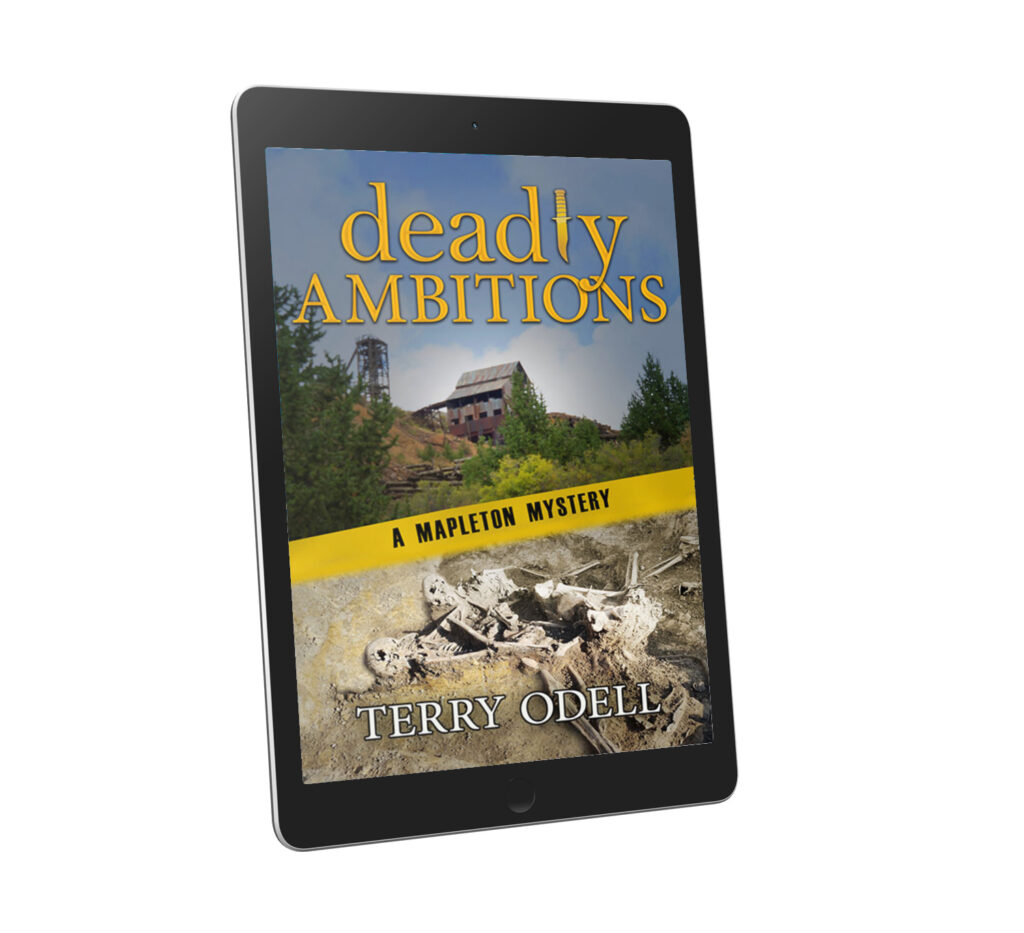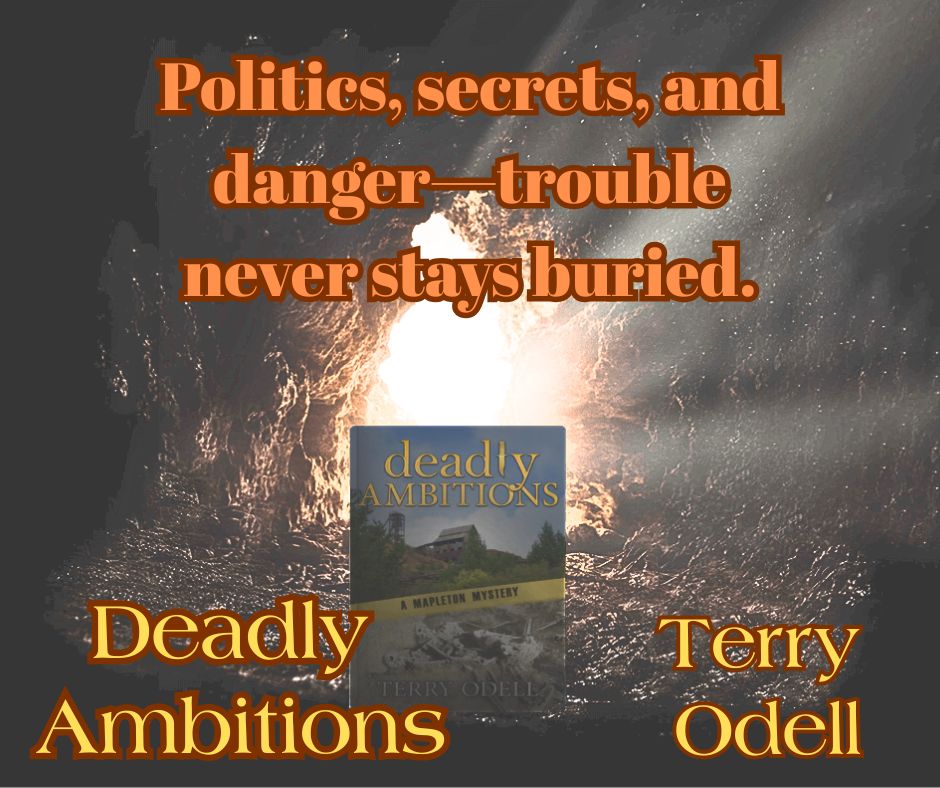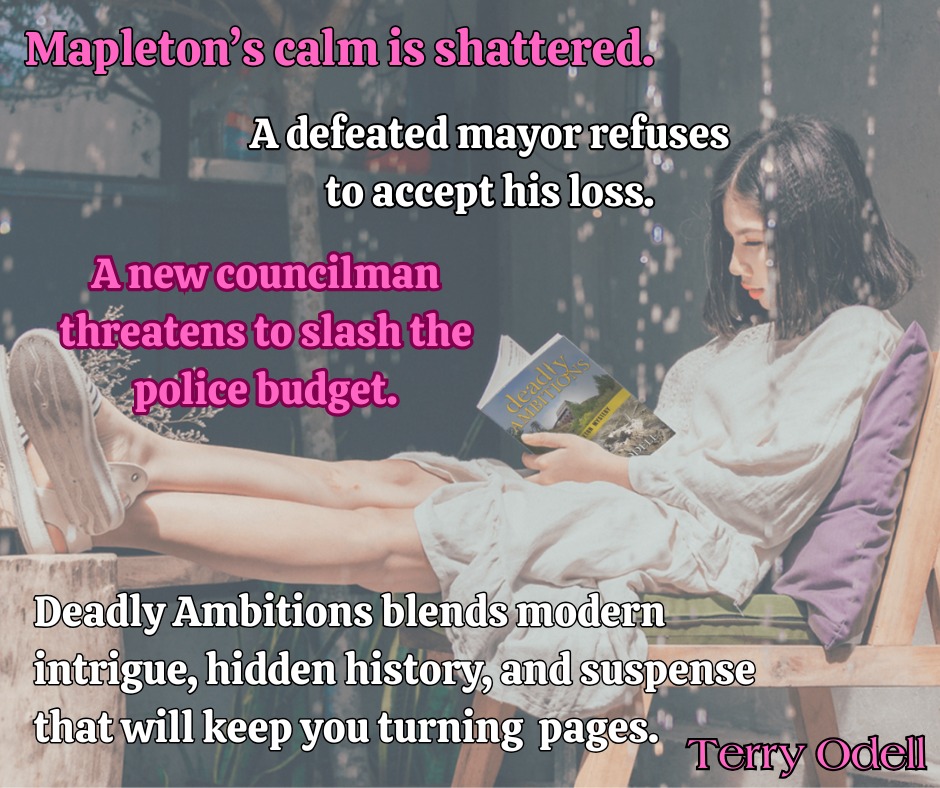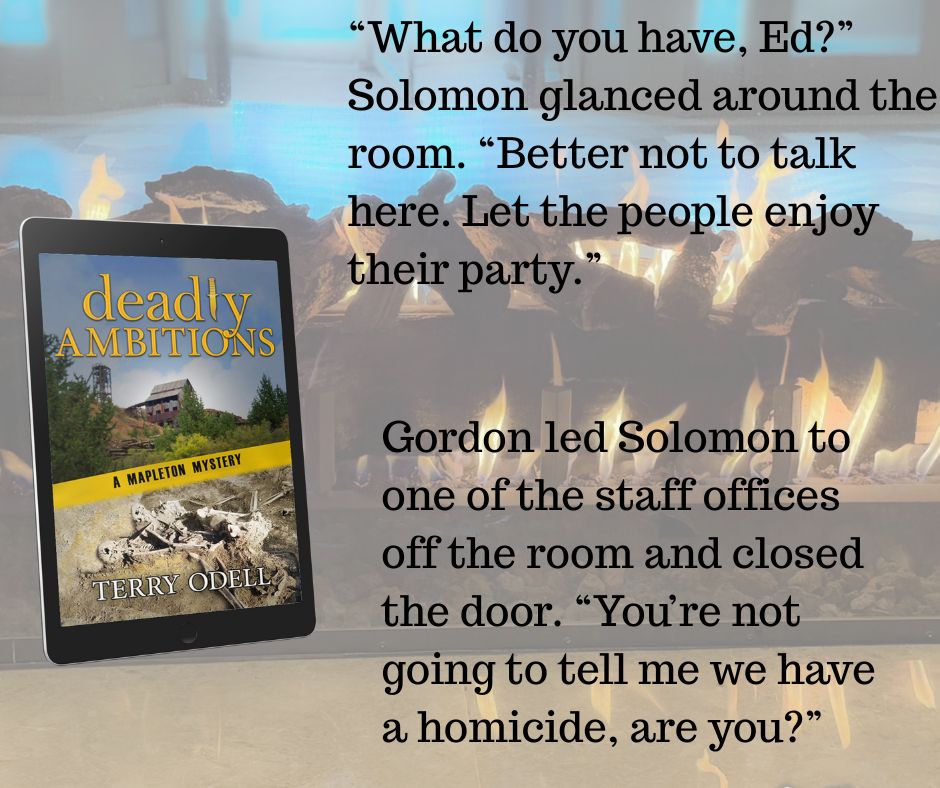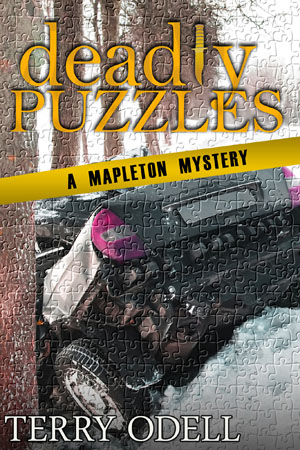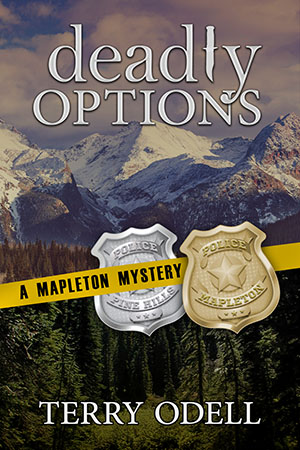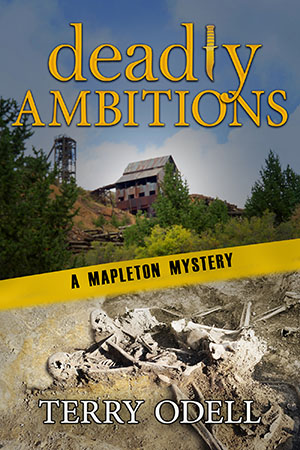Story Genius
Terry Odell
There have been great societies that did not use the wheel, but there have been no societies that did not tell stories … Ursula K. Leguin
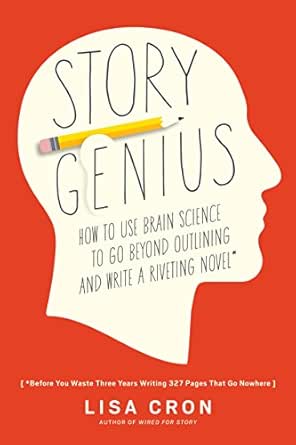
I recently discovered an overlooked book in my Nook Library. Given I was in that what next after finishing Deadly Ambitions, and waiting for the release date I’d set several months in advance, I opened it.
It’s been a while since I’ve read a craft book, and our own JSB has a passel of them out there, but I’ve heard Lisa Cron speak, and I thought I’d give this one a try.
The book? How to Use Brain Science to Go Beyond Outlining and Write a Riveting Novel (Before You Waste Three Years Writing 327 Pages That Go Nowhere) by Lisa Cron. With a title like that, who could resist?
Cron quotes Jonathan Gottschall, author of The Storytelling Animal, who says, “Functional MRI (fMRI) studies reveal that when we’re reading a story, our brain activity isn’t that of an observer, but of a participant. … Their brains are instructing their bodies to do all the things they’d do if they were actually under mortal attack.”
Cron then goes on to say that story is the original virtual reality, and it dates back to the days of the cave people. If it had no adaptive significance, it would have disappeared long, long ago.
“It turns out that great feeling you get when you’re lost in a good story, the feeling that can keep you up all night reading, is not ephemeral, it’s not arbitrary, it’s not pleasure for pleasure’s sake, it’s not even. It’s actually the biological lure, the hook that paralyzes you, making the real world vanish so you can experience the world of the story. That feeling is what compels us to drop everything and pay attention.
What actually causes that great feeling is a surge of the neurotransmitter dopamine. It’s a chemical reaction triggered by the intense curiosity that an effective story always instantly generates. It’s your brain’s way of rewarding you for following your curiosity to find out how the story ends, because you just might learn something that you need to know.”
Cron makes the distinction between plot and story.
Plot:
- Plot is the sequence of external events — the things that happen on the surface. It’s the visible action: what the characters do, what obstacles they face, what events unfold.
- Plot is the vehicle that delivers the story — but not the story itself.
- As Cron puts it, plot is “what happens,” but it’s not “what it means.”
Story:
- The story is the internal journey — the change happening inside the protagonist as a result of those external events.
- It’s driven by the protagonist’s misbelief — a deeply held but false belief formed in the past that shapes how they see the world.
- Every event in the plot should force the protagonist to confront and eventually reevaluate that misbelief.
Story is about how the external events (plot) affect the character and how they transform because of them. Readers care because of what those events mean to the character. Readers don’t care about events in isolation.
Cron also goes into great length about the third rail, which she says is the protagonist’s internal struggles. It’s the emotional energy source that gives power and meaning to everything that happens. Without this third rail, the plot just sits there, going nowhere emotionally.
She also stresses the protagonist’s misbelief, which is deeply ingrained, but is a false belief about themselves or the world, formed from a painful past experience. For example, the character has been hurt by someone close to them, so they don’t let anyone else close. They believe that if they stay independent, they’ll never get hurt. For character growth, they need to learn that real safety comes from trust, not isolation.
Cron goes on to offer her process for writing a novel. She had a willing volunteer who had a glimmer of a story idea, and they agreed to work together to turn that idea into a novel, and it was interesting to watch the process unfold.
Am I a follower? Not really. The closest I come is being a planster rather than a panster. Cron shows us her story cards (although you don’t need to have them all written before you start). Do I think I’ll use them? Probably not. I’m too lazy. And, they’re much more complex than scene notes on 3×5 cards (or their digital equivalent.)
What do her cards look like?
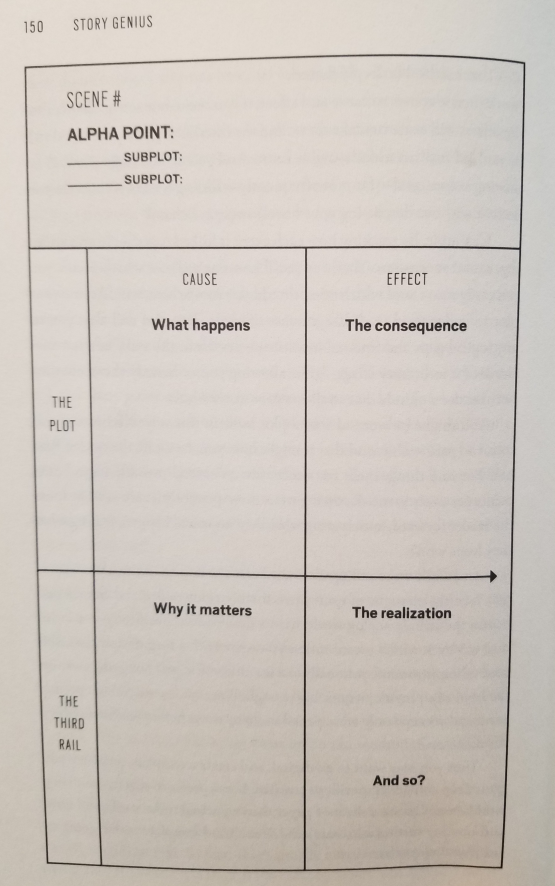
The Alpha Point – what is the scene supposed to accomplish?
Subplots – what’s going on with secondary characters?
The top row in the grid is the Plot. What happens, and the consequences.
Below that is the Third Rail – Why it matters, and what does the character realize?
Last is the And So? What happens next, which will lead into the next scene.
Cron points out that these cards don’t have to be written in order, which to my mind is a good thing. To be honest, I’m much more likely to write something like these cards after I’ve written the scene. I prefer playing with the words on the page/screen once I can see what’s happening.
And for this, Cron’s biggest takeaway for me is to keep asking Why? This is something I’ve been doing almost from the beginning of my writing gig, but it’s nice to get a reminder once in a while.
For my current wip, I knew my protagonist preferred to hide behind the lens of her camera, but I needed to know why. For Cron, getting to know characters isn’t filling out a sheet with height, weight, eye and hair color. It’s digging into their pasts, discovered what shaped their lives up to the point of Chapter 1. This becomes the back story that’s trickled in as needed.
My noodling with an opening paragraph doesn’t show any of my delving into Evvie’s why.
Door chimes tinkled a cheerful greeting as Evvie Gale pushed open the door to the Barrington gallery. “You wanted to see me?” Smiling, she approached the counter, where Roger Barrington glanced up for a nanosecond before ducking his head, averting his gaze. Not the face of someone happy to see her. Not the expression of someone who wanted to extend an invitation to display more of Evie’s photographs.
I’m hoping readers will be interested enough in the ‘whys’ of this opening paragraph to keep reading. And, this is all subject to change as more of the plot and story unfold.
In closing, a lot of what Cron writes has been written before, with different terminology. But a rose by any other name can still help our writing.
Your turn. The floor is open.
Find me at Substack with Writings and Wanderings
Deadly Ambitions
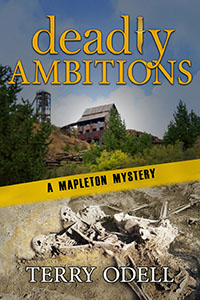 Peace in Mapleton doesn’t last. Police Chief Gordon Hepler is already juggling a bitter ex-mayoral candidate who refuses to accept election results and a new council member determined to cut police department’s funding.
Peace in Mapleton doesn’t last. Police Chief Gordon Hepler is already juggling a bitter ex-mayoral candidate who refuses to accept election results and a new council member determined to cut police department’s funding.
Meanwhile, Angie’s long-delayed diner remodel uncovers an old journal, sparking her curiosity about the girl who wrote it. But as she digs for answers, is she uncovering more than she bargained for?
Now, Gordon must untangle political maneuvering, personal grudges, and hidden agendas before danger closes in on the people he loves most.
Deadly Ambitions delivers small-town intrigue, political tension, and page-turning suspense rooted in both history and today’s ambitions.
 Terry Odell is an award-winning author of Mystery and Romantic Suspense, although she prefers to think of them all as “Mysteries with Relationships.”
Terry Odell is an award-winning author of Mystery and Romantic Suspense, although she prefers to think of them all as “Mysteries with Relationships.”


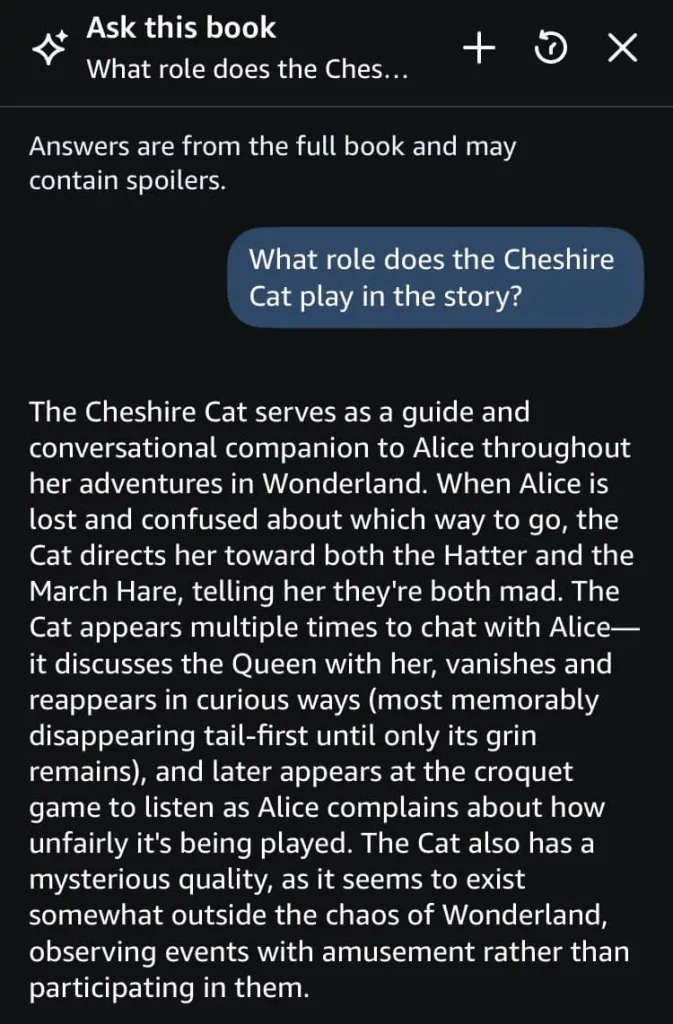
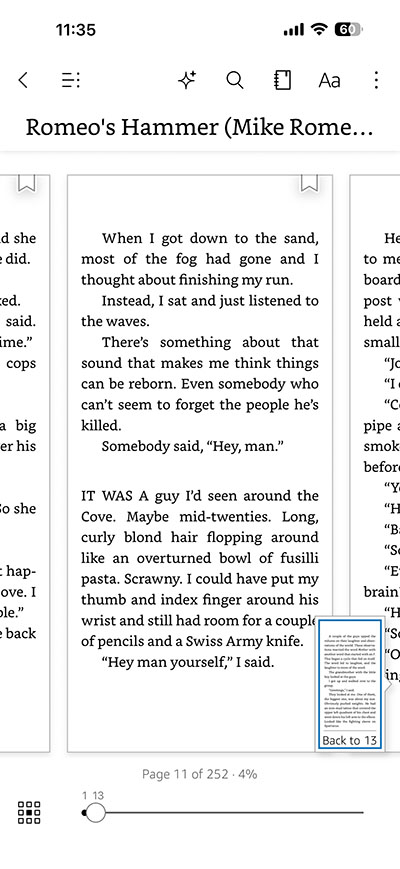
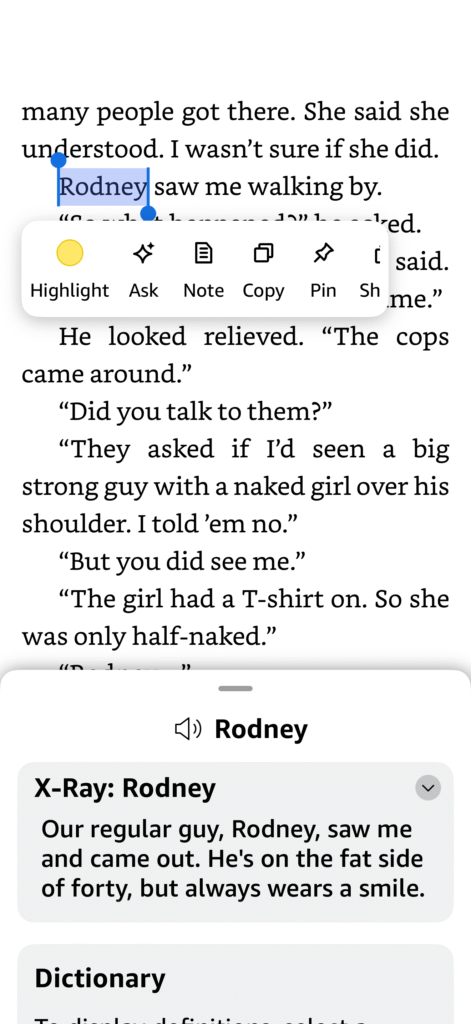
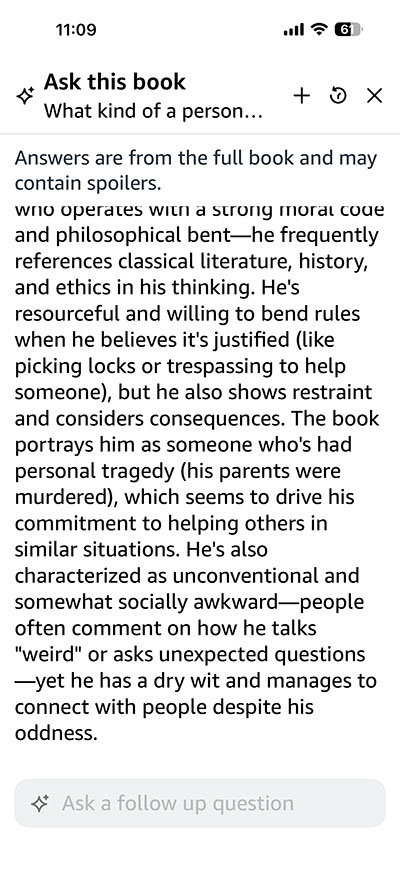
 I hope you don’t mind if I indulge in a little BSP. It’s release day for
I hope you don’t mind if I indulge in a little BSP. It’s release day for 


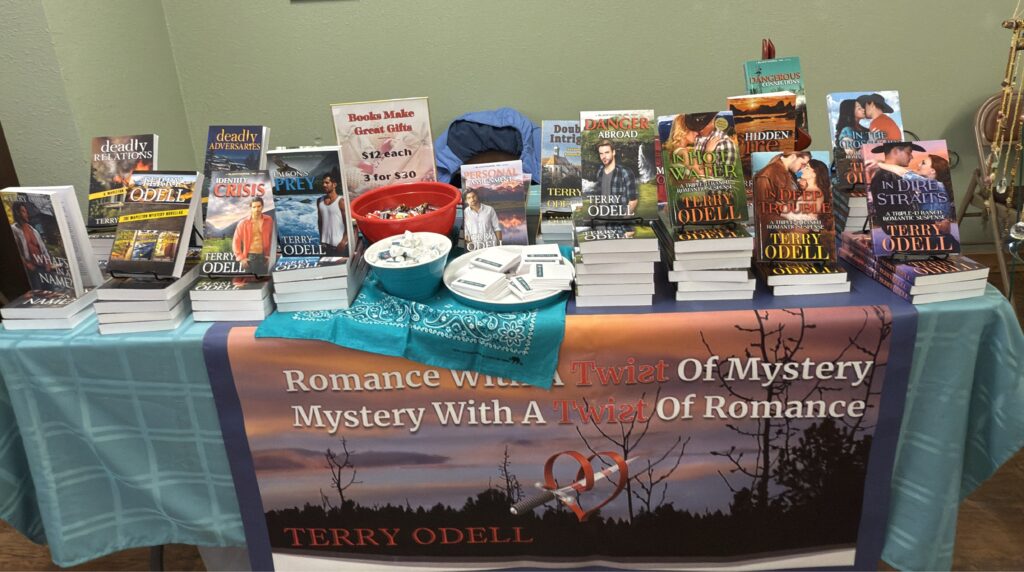

 In
In 


